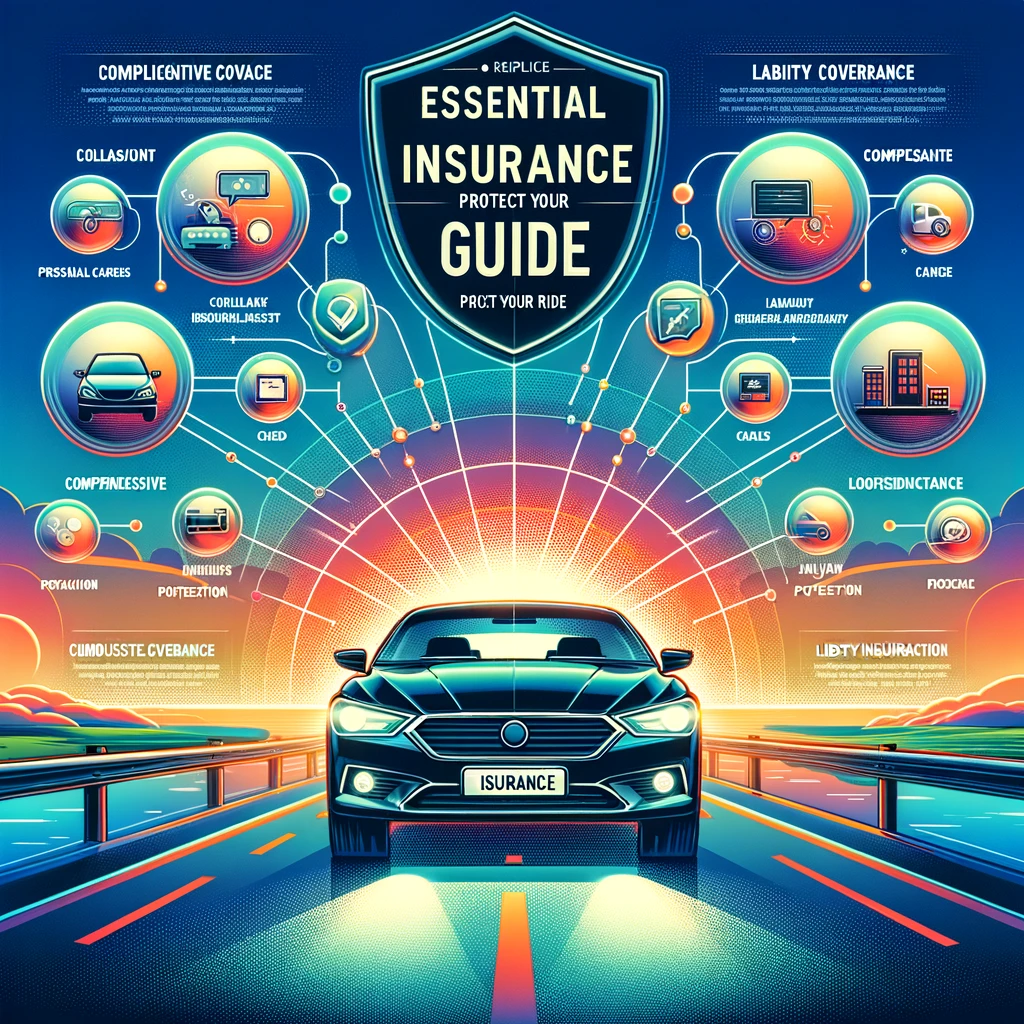Navigating the world of car insurance can be daunting, especially when trying to find the right balance between coverage and cost. In this comprehensive guide, we delve into the intricacies of car insurance, offering you practical tips, examples, and insights to help you make informed decisions. By the end of this article, you will have a clear understanding of car insurance, empowering you to protect your ride adequately.
Understanding the Basics of Car Insurance
Car insurance is a contract between you and the insurance company, wherein you pay a premium in exchange for protection against financial losses stemming from car-related incidents. Coverage typically includes liability for bodily injury and property damage, collision, comprehensive, personal injury protection (PIP), and uninsured/underinsured motorist coverage.
Types of Coverage
- Liability Insurance: Covers costs related to injuries or damage you cause to others in an accident.
- Collision Insurance: Pays for damage to your car resulting from a collision, regardless of fault.
- Comprehensive Insurance: Protects against non-collision-related incidents, such as theft, fire, or natural disasters.
- Personal Injury Protection (PIP): Covers medical expenses for you and your passengers after an accident.
- Uninsured/Underinsured Motorist Protection: Offers coverage if you’re involved in an accident with a driver who has no insurance or insufficient coverage.
Choosing the Right Policy
Selecting the right policy involves evaluating your needs, understanding the value of your vehicle, and considering your financial situation. Higher deductibles can lower your premium, but it’s essential to ensure you can afford them in the event of a claim. Comparing quotes from multiple insurers can also help you find the best rates and coverage options.
Practical Tips for Saving on Car Insurance
- Bundle Policies: Combining your car insurance with other policies, like homeowners insurance, can lead to discounts.
- Maintain a Good Driving Record: Safe driving can qualify you for discounts and lower premiums.
- Choose Your Vehicle Wisely: The type of car you drive affects your rates. Safety features and a lower risk of theft can reduce premiums.
- Increase Your Deductible: Opting for a higher deductible can lower your premium, but make sure you can afford it in case of a claim.
- Take Advantage of Discounts: Many insurers offer discounts for things like defensive driving courses, good student grades, or having a car with advanced safety features.
The Importance of Regular Policy Reviews
It’s crucial to review your car insurance policy regularly, especially after major life events like moving, buying a new car, or adding a driver to your policy. Changes in your life can affect your insurance needs and potential discounts.
Filing a Claim: What You Need to Know
In the event of an accident or theft, knowing how to file a claim can expedite the process. Document the incident thoroughly, contact your insurance provider as soon as possible, and follow their instructions. Keeping detailed records and communicating effectively with your insurer can make the claims process smoother.
Conclusion
Understanding car insurance is crucial for every driver. By familiarizing yourself with the types of coverage, evaluating your needs, and applying tips to save on premiums, you can protect yourself, your passengers, and your vehicle effectively. Regularly reviewing your policy and staying informed about your insurance options will ensure you have the coverage you need at the best possible rate.
Remember, car insurance is not just a legal requirement—it’s a crucial investment in your safety and financial well-being. Take the time to choose the right policy, and don’t hesitate to consult with insurance professionals to tailor coverage to your specific needs.
FAQ About Car Insurance
What is the best way to compare car insurance policies?
The best way to compare car insurance policies is by evaluating the coverage, deductible, premium, and customer service ratings of multiple insurers.
Start by determining your coverage needs based on your vehicle, driving habits, and financial situation. Then, request quotes from several insurance companies for policies that meet your requirements. Pay close attention to the details of each quote, including the limits of coverage, deductible amounts, and any exclusions or additional benefits.
Additionally, researching customer reviews and financial stability ratings of insurers can provide insights into their service quality and ability to pay claims. Comparing policies on these criteria will help you find the best car insurance that offers comprehensive protection at a competitive price.
